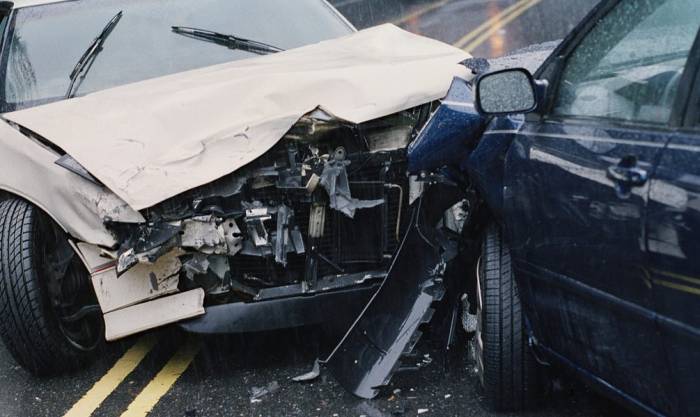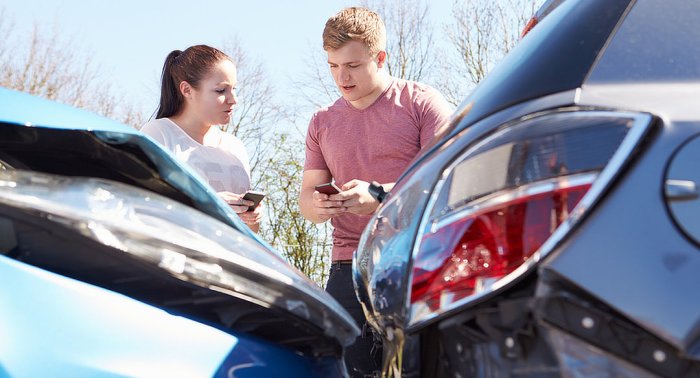Car crash while hitchhiking summary – This comprehensive summary delves into the topic of car crashes while hitchhiking, exploring its prevalence, causes, consequences, and prevention strategies. It examines the unique risks associated with hitchhiking and provides valuable insights into how to mitigate them.
Hitchhiking and Car Crashes: Car Crash While Hitchhiking Summary

Hitchhiking, the practice of soliciting rides from passing vehicles, carries an inherent risk of car crashes. Statistics reveal a higher prevalence of crashes involving hitchhikers compared to other modes of transportation. This increased risk can be attributed to various factors, including driver distraction, hitchhiker intoxication, vehicle defects, and unpredictable road conditions.
Causes of Car Crashes While Hitchhiking, Car crash while hitchhiking summary
The most common causes of car crashes involving hitchhikers include:
- Driver distraction or impairment:Drivers who are distracted or impaired by alcohol or drugs pose a significant risk to hitchhikers.
- Hitchhiker intoxication or recklessness:Hitchhikers who are intoxicated or behaving recklessly can contribute to crashes.
- Vehicle defects or malfunctions:Mechanical failures or poorly maintained vehicles can lead to accidents.
- Unpredictable road conditions:Adverse weather conditions, poor visibility, or road hazards can increase the likelihood of crashes.
Consequences of Car Crashes While Hitchhiking
Car crashes involving hitchhikers can have severe consequences, including:
- Physical injuries:Hitchhikers are particularly vulnerable to injuries due to their lack of protection in the event of a crash.
- Emotional trauma:Crashes can cause significant emotional distress and psychological trauma.
- Legal implications:Hitchhikers may face legal charges if they are involved in a crash while intoxicated or engaging in reckless behavior.
- Financial burdens:Medical expenses, lost wages, and legal fees can impose a heavy financial burden on hitchhikers.
Prevention Strategies
Hitchhikers can reduce their risk of car crashes by implementing the following strategies:
- Choose safe hitchhiking locations:Hitchhike only in well-lit, populated areas with good visibility.
- Assess potential drivers carefully:Pay attention to the driver’s demeanor, appearance, and vehicle condition.
- Establish clear communication with drivers:Discuss the destination, route, and any expectations before getting in the vehicle.
- Maintain awareness of surroundings:Be alert to any suspicious activity or potential hazards.
Role of Law Enforcement and Public Policy
Law enforcement plays a crucial role in preventing and responding to car crashes involving hitchhikers. Police officers can enforce traffic laws, patrol hitchhiking areas, and provide assistance to hitchhikers in need.
Public policy initiatives can also enhance safety for hitchhikers. These initiatives may include:
- Designated hitchhiking zones:Establishing safe and designated areas for hitchhiking can reduce the risk of crashes.
- Enhanced driver screening:Background checks and screening processes can help identify drivers who pose a risk to hitchhikers.
- Public awareness campaigns:Educating the public about the risks of hitchhiking and the importance of responsible driving can help prevent crashes.
Clarifying Questions
What are the most common causes of car crashes involving hitchhikers?
Driver distraction or impairment, hitchhiker intoxication or recklessness, vehicle defects, and unpredictable road conditions.
What are the potential consequences of car crashes for hitchhikers?
Physical injuries, emotional trauma, legal implications, and financial burdens.
What are some practical tips for hitchhikers to reduce their risk of car crashes?
Choosing safe hitchhiking locations, assessing potential drivers carefully, establishing clear communication, and maintaining awareness of surroundings.
